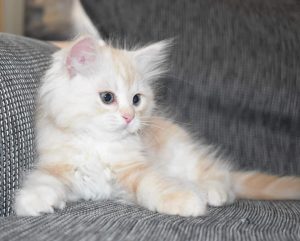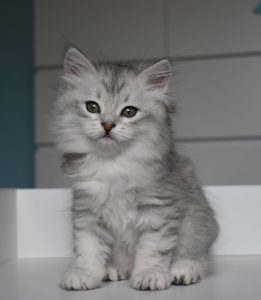Table of Contents
ToggleDo Siberian Cats Hibernate. Do Siberian Cats Hibernate? Understanding Their Behavior and Adaptations
Siberian cats are a fascinating breed known for their beautiful fur, playful nature, and adaptability to various environments. One question that often arises among cat owners and enthusiasts is: Do Siberian cats hibernate? While cats do not hibernate in the same way some animals do, understanding their behavior during colder months and how they adapt to their environment is essential. In this comprehensive guide, we will explore the habits of Siberian cats, their adaptations to cold climates, and what you can do to ensure their comfort year-round./

Do Siberian Cats Hibernate
Understanding Hibernation
What is Hibernation?
Do Siberian Cats Hibernate
Do Cats Hibernate?
Do Siberian Cats Hibernate
Siberian Cats and Cold Climates
Origin of Siberian Cats
- Thick Fur: Siberian cats have a dense, triple-layered coat that provides insulation against frigid temperatures. This coat not only keeps them warm but also protects them from moisture and snow.
- Strong Build: Their muscular body structure allows them to navigate snowy terrains effectively, making them agile hunters even in winter.
- Paws Adaptations: Siberian cats have large, tufted paws that act like snowshoes, preventing them from sinking into deep snow and providing better traction.
Behavioral Adaptations
While Siberian cats do not hibernate, they exhibit certain behaviors that help them cope with colder temperatures:
- Seeking Warmth: During winter, Siberians may seek out warm spots in the house, such as sunny windowsills or near heaters. They often curl up in cozy places to conserve body heat.
- Increased Sleeping: Siberian cats may sleep more during colder months, conserving energy while remaining alert and ready to play or hunt when necessary.
- Playful Behavior: Despite the cold, Siberian cats remain playful and active. They enjoy engaging in playtime, which helps them maintain their physical fitness and mental stimulation./

Do Siberian Cats Hibernate Do Siberian Cats Hibernate
Ensuring Comfort for Your Siberian Cat
Indoor Environment
To keep your Siberian cat comfortable during cold weather, consider the following:
- Warm Sleeping Areas: Provide cozy, warm bedding in quiet areas of your home. Heated cat beds or blankets can be particularly inviting during winter months.
- Temperature Control: Ensure your home is adequately heated during the colder months. Avoid allowing your cat to stay in drafty areas.
- Access to Sunlight: Cats love sunny spots. Consider leaving curtains open during the day to allow sunlight into your home, giving your Siberian a warm place to lounge.
Outdoor Considerations
If you allow your Siberian cat outdoor access, keep the following in mind:
- Limit Outdoor Time: During extreme cold or snowstorms, limit your cat’s outdoor time. Even though Siberians are adapted to cold, prolonged exposure can be harmful.
- Shelter: If your cat spends time outside, ensure they have access to a warm, dry shelter to retreat to during inclement weather.
- Monitoring Health: Keep an eye on your cat’s behavior during winter. If you notice signs of discomfort, such as shivering or reluctance to go outside, consider adjusting their outdoor time.

Do Siberian Cats Hibernate
Health Considerations During Cold Weather
Common Health Issues
While Siberian cats are generally healthy, winter can bring about specific health concerns:
- Hypothermia: Prolonged exposure to cold can lead to hypothermia, especially in younger or older cats. It’s crucial to monitor your cat if they are outdoors in cold weather.
- Frostbite: Areas with less fur, such as ears and paw pads, are susceptible to frostbite. If your cat exhibits signs of pain or sensitivity in these areas, consult your veterinarian.
- Respiratory Issues: Cold weather can exacerbate respiratory problems. Ensure your cat stays warm and monitor for any signs of illness.
Regular Vet Check-ups
Regular veterinary visits are vital to ensure your Siberian cat remains healthy throughout the year. Discuss any seasonal concerns with your vet, such as changes in behavior or appetite during winter months.
Siberian cats do not hibernate, but they have adapted beautifully to thrive in cold climates. Understanding their behaviors and needs during colder months is essential for providing them with a comfortable and healthy environment. By ensuring they have warm sleeping areas, controlling indoor temperatures, and monitoring their outdoor activities, you can help your Siberian cat enjoy the winter season safely. Embrace their playful nature, and remember that providing love and care is the best way to support your furry friend throughout the year!
